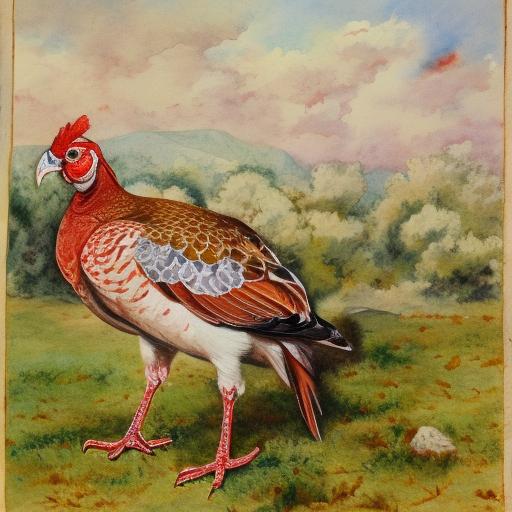Turkey is a popular poultry choice for many households, especially during the holiday season. There are several different breeds of turkeys, each with its own unique characteristics and flavor profiles. Understanding the differences between these breeds can help you choose the right turkey for your culinary needs. From the heritage breeds to the commercial breeds, each type of turkey offers something special in terms of taste, texture, and juiciness. Whether you’re looking for a traditional, rich flavor or a more mild and tender meat, there’s a turkey breed out there to suit your preferences.
When it comes to turkey breeds, there are several factors to consider, including the bird’s size, flavor profile, and cooking considerations. Some breeds are known for their robust, gamey flavor, while others are prized for their tender, juicy meat. Additionally, certain breeds may require different cooking methods to bring out their best qualities. By understanding the characteristics of different turkey breeds, you can make an informed decision when selecting a bird for your next culinary creation.
Key Takeaways
- There are several different turkey breeds, each with its own unique characteristics and flavor profiles.
- The flavor profiles of different turkey breeds can range from mild and delicate to rich and gamey, offering a variety of options for culinary use.
- The texture and juiciness of different turkey breeds can vary, with some breeds being more tender and succulent than others.
- When cooking with different turkey breeds, it’s important to consider factors such as cooking time, temperature, and seasoning to bring out the best flavors and textures.
- Popular turkey breeds for culinary use include the Broad Breasted White, Bourbon Red, and Narragansett, each offering distinct qualities for different cooking applications.
Flavor Profiles of Different Turkey Breeds
The flavor profile of a turkey breed is one of the most important factors to consider when choosing a bird for your culinary needs. Heritage breeds, such as the Bourbon Red and Narragansett, are known for their rich, gamey flavor. These turkeys have a more pronounced taste that is often described as earthy and robust. On the other hand, commercial breeds, such as the Broad Breasted White and Broad Breasted Bronze, tend to have a milder flavor profile. These turkeys are often favored for their tender, juicy meat and are a popular choice for commercial production.
In addition to heritage and commercial breeds, there are also specialty breeds that offer unique flavor profiles. For example, the Royal Palm turkey is known for its delicate, sweet flavor, making it a popular choice for those who prefer a milder taste. Understanding the flavor profiles of different turkey breeds can help you choose the right bird for your culinary creations. Whether you’re looking for a bold, gamey flavor or a more mild and tender meat, there’s a turkey breed out there to suit your preferences.
Texture and Juiciness of Different Turkey Breeds
In addition to flavor, the texture and juiciness of a turkey breed are important considerations when selecting a bird for culinary use. Heritage breeds, such as the Standard Bronze and Black Spanish, are known for their firm texture and rich juiciness. These turkeys have a denser meat that holds up well to roasting and other cooking methods. On the other hand, commercial breeds, such as the Broad Breasted White and Broad Breasted Bronze, are prized for their tender, juicy meat. These turkeys have a softer texture that is often preferred by those who enjoy a more delicate mouthfeel.
Specialty breeds also offer unique texture and juiciness characteristics. For example, the Midget White turkey is known for its tender, succulent meat, making it a popular choice for those who prefer a more delicate texture. Understanding the texture and juiciness of different turkey breeds can help you select the right bird for your culinary needs. Whether you’re looking for a firm, dense meat or a more tender and juicy texture, there’s a turkey breed out there to suit your preferences.
Cooking Considerations for Different Turkey Breeds
When it comes to cooking turkey, different breeds may require different considerations to bring out their best qualities. Heritage breeds, such as the Bourbon Red and Narragansett, are often best suited for slow roasting or smoking to enhance their rich, gamey flavor. These turkeys benefit from longer cooking times to fully develop their robust taste and firm texture. On the other hand, commercial breeds, such as the Broad Breasted White and Broad Breasted Bronze, are often best suited for faster cooking methods, such as roasting or frying, to preserve their tender, juicy meat.
Specialty breeds also have unique cooking considerations. For example, the Royal Palm turkey is often best suited for gentle cooking methods, such as braising or poaching, to preserve its delicate, sweet flavor. Understanding the cooking considerations for different turkey breeds can help you prepare a delicious meal that showcases the unique qualities of each bird. Whether you’re slow roasting a heritage breed or frying a commercial breed, there’s a cooking method that will bring out the best in your chosen turkey.
Popular Turkey Breeds for Culinary Use
There are several popular turkey breeds that are commonly used in culinary applications. Heritage breeds, such as the Bourbon Red and Narragansett, are prized for their rich, gamey flavor and firm texture. These turkeys are often favored by chefs and home cooks alike for their robust taste and ability to hold up well to various cooking methods. Commercial breeds, such as the Broad Breasted White and Broad Breasted Bronze, are popular choices for their tender, juicy meat and mild flavor profile. These turkeys are commonly used in commercial production and are also a favorite among home cooks for their versatility in the kitchen.
In addition to heritage and commercial breeds, there are also specialty breeds that offer unique qualities for culinary use. The Royal Palm turkey is known for its delicate, sweet flavor and tender texture, making it a popular choice for those who prefer a milder taste. The Midget White turkey is prized for its tender, succulent meat and is often used in gourmet culinary applications. Whether you’re looking for a bold, gamey flavor or a more mild and tender meat, there’s a popular turkey breed out there to suit your culinary needs.
Factors Affecting the Taste of Turkey Breeds

Several factors can affect the taste of different turkey breeds, including diet, age at processing, and cooking method. Heritage breeds are often raised on pasture and fed a diverse diet of grasses and insects, which can contribute to their rich, gamey flavor. Additionally, heritage turkeys are typically processed at an older age compared to commercial breeds, which can also impact their taste and texture. The cooking method used can further enhance or diminish the natural flavors of the turkey breed.
Commercial breeds are typically raised in controlled environments and fed a consistent diet of grains and supplements. This can result in a milder flavor profile compared to heritage breeds. Additionally, commercial turkeys are processed at a younger age, which can result in more tender meat but may lack the depth of flavor found in heritage breeds. Understanding the factors that affect the taste of turkey breeds can help you make an informed decision when selecting a bird for your culinary creations.
Choosing the Right Turkey Breed for Your Tastebuds
When it comes to choosing the right turkey breed for your culinary needs, there are several factors to consider. From flavor profiles and texture to cooking considerations and popular breeds, understanding the characteristics of different turkey breeds can help you make an informed decision. Whether you prefer a rich, gamey flavor or a more mild and tender meat, there’s a turkey breed out there to suit your tastebuds.
By considering factors such as diet, age at processing, and cooking method, you can further enhance the natural qualities of your chosen turkey breed. Whether you opt for a heritage breed with robust flavors or a commercial breed with tender meat, there’s a turkey out there that will satisfy your culinary desires. With so many options available, choosing the right turkey breed can elevate your next meal and leave your tastebuds craving more.
If you’re curious about the taste differences between various breeds of turkey, you might find it interesting to read an article on PoultryWizard.com that delves into the topic. The article discusses how different breeds of turkey can vary in flavor and texture, providing valuable insights for anyone interested in raising or cooking turkeys. Check out the article here to learn more about this fascinating aspect of turkey farming and culinary exploration.
FAQs
What are the different breeds of turkey?
There are several different breeds of turkey, including the Broad Breasted White, Broad Breasted Bronze, Bourbon Red, Narragansett, and Heritage breeds such as the Standard Bronze, Black, and Slate.
Do different breeds of turkey taste different?
Yes, different breeds of turkey can have varying flavors and textures. For example, Heritage breeds are known for their rich, gamey flavor, while the Broad Breasted White is often preferred for its mild taste and tender meat.
What factors contribute to the taste of different turkey breeds?
The taste of different turkey breeds can be influenced by factors such as their diet, living conditions, and genetics. Heritage breeds, for example, are often raised in more natural, free-range environments, which can contribute to their distinct flavor.
Are certain breeds of turkey better for specific cooking methods?
Yes, certain breeds of turkey may be better suited for specific cooking methods. For example, the Broad Breasted White is often preferred for roasting due to its tender meat, while Heritage breeds may be better for slow cooking methods such as smoking or braising.
Is there a “best” breed of turkey for taste?
Taste preferences are subjective, so there is no one “best” breed of turkey for taste. Some people may prefer the mild flavor of the Broad Breasted White, while others may enjoy the richer, more flavorful meat of Heritage breeds.
Meet Walter, the feathered-friend fanatic of Florida! Nestled in the sunshine state, Walter struts through life with his feathered companions, clucking his way to happiness. With a coop that’s fancier than a five-star hotel, he’s the Don Juan of the chicken world. When he’s not teaching his hens to do the cha-cha, you’ll find him in a heated debate with his prized rooster, Sir Clucks-a-Lot. Walter’s poultry passion is no yolk; he’s the sunny-side-up guy you never knew you needed in your flock of friends!







